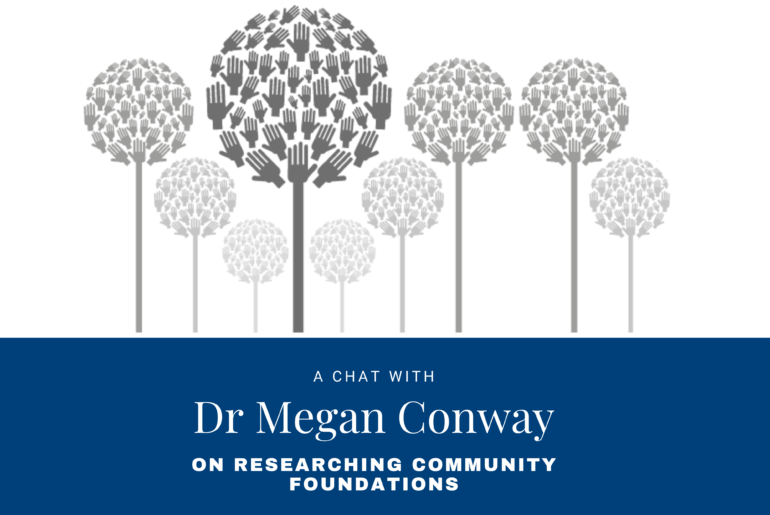Dr Megan Conways serves as an Executive in Residence at Capacity Canada and is a Postdoctoral Fellow at Carleton University, working alongside ACPNS Ian Potter Visiting Fellow, Dr Susan Phillips. Megan also works closely with ACPNS researcher, Dr Alexandra Williamson on a number of philanthropy-related research projects. In this interview, Megan chats about her research into Community Foundations.
We thank Phi Lab for publishing this great interview.
Clarine Mukendi (CM): When did you first become interested in doing research on community foundations?
Dr. Megan Conway (MC): That’s a good question. When I think back on some of the research that has been done, my Australian colleague, Alexandra Williamson, has done a lot of work around philanthropic research, while my research has been related to community economic development. She and I had several conversations around the notion of place and place-based change in our communities, and our countries of origin. We then started talking about some of the challenges that COVID-19 presented and wondered whether the role of community foundations, being very rooted in place, would be a good mode of analysis relative to thinking about change in places. We considered the role of community foundations in mitigating or mediating change and how it might be a good way of conducting comparative analysis between both of our countries.
The questions we started to look at emerged around last summer, when the first wave of COVID-19 was somewhat coming to an end. We were all much more hopeful about the fall, and all thought we were going to return to normal. Little did we know; the whole year would continue as it did. I believe it was around this time when the question started to percolate.
CM: Was there any particular reason why you chose to do work in this area (other than of course you would be filling a gap in the scholarly literature)?
MC: I would say on community foundations specifically because my colleague and I were interested in the dynamic nature of what was happening in communities and in specific places. We were both keen to think about those questions comparatively; when you think about comparative analysis, it’s hard sometimes to find a consistent unit of analysis. For us, community foundations were a standard unit of research that we could utilize to support a deeper exploration of questions of what was happening within communities relative to change at the community level, given the impacts of COVID-19 accelerating change around climate impacts and health impacts from climate change therefore, we wanted to think about what was consistent. I believe the notion that community foundations were trying to manage change in both countries was a point in common.

Dr. Megan Conway serves as an Executive in Residence at Capacity Canada and a Postdoctoral Fellow at Carleton University. She has worked for nearly twenty years in various leadership roles in the nonprofit sector and within post-secondary institutions. Dr. Conway has served on a number of boards, including the Sierra Club of Canada, Ottawa Riverkeeper and Social Venture Partners Waterloo Region.
Interested in knowing more about research into philanthropy? Other resources include:
Research by Dr Alexandra Williamson




